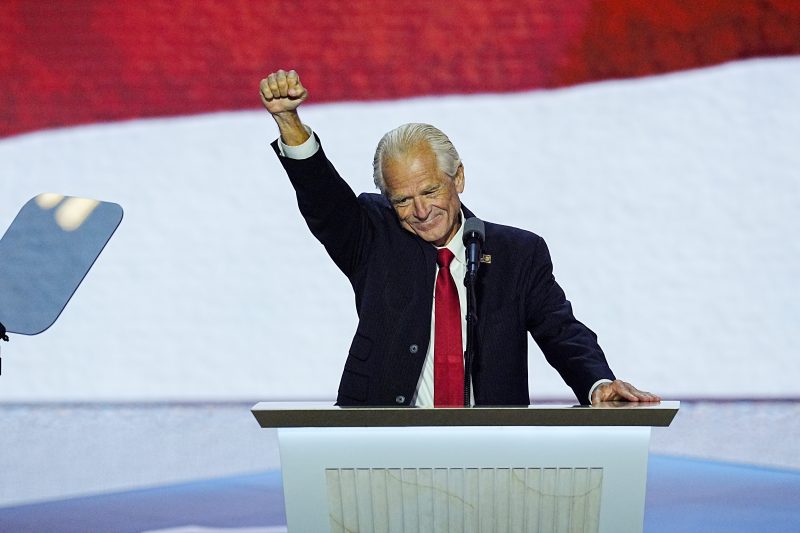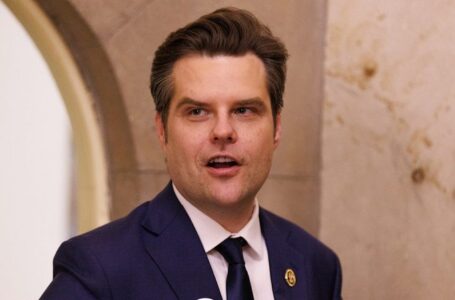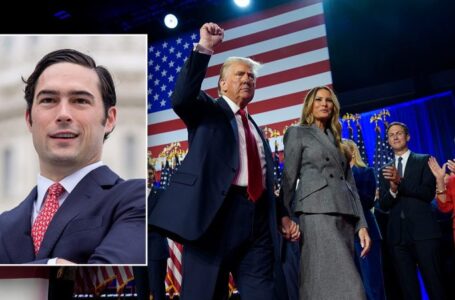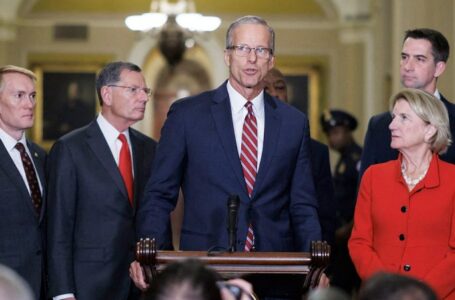British Airways says it’s fixing ‘technical issue’ amid flight delays
The other issue with Trump’s plan to stuff the government with loyalists


Familiar figures from Donald Trump’s orbit showed up at the Republican convention in Milwaukee on Wednesday. There was his former adviser Peter Navarro, who gave a rip-roaring speech to an enthusiastic audience. There was his former campaign manager, Paul Manafort. His longtime adviser Roger Stone showed up on the convention floor, too.
All of them have something in common with Trump that bears mentioning: Each is a criminal. Stone and Manafort were lucky enough to be convicted while Trump was president, earning clemency.
Other figures from Trump’s orbit were missing from the GOP celebration. Few of those who served in his Cabinet were there, for example. Nor was his former vice president, Mike Pence. Normally, a Republican convention would carve out speaking time for the party’s former nominees and executive officials; in 2024, most didn’t even show up.
There’s no mystery about why Pence wasn’t there, of course. Trump pressured Pence to subvert the results of the 2020 election, which Pence declined to do. So Trump turned against him, attacking Pence on social media as an angry mob attacked the Capitol on Jan. 6, 2021.
Pence’s experience was simply an extreme iteration of what many others who worked for Trump went through. Former attorney general William P. Barr was fervently loyal to Trump — until he declined to endorse the idea that the election was stolen. So Trump said Barr was “gutless” and “lazy” and an enemy of Trumpworld. For his part, his predecessor Jeff Sessions “didn’t have a clue.” Former defense secretary Jim Mattis was “the world’s most overrated General.” Former secretary of state Rex Tillerson was “dumb as a rock.”
Those latter three officials were part of a Cabinet that Trump once touted as having the “highest IQ” of any ever assembled. But then Sessions, Mattis and Tillerson dared to disagree with Trump, and suddenly they were disparaged as feckless and inept.
“If there was one criticism that I would level against the President [it] is he didn’t hire very well,” Mick Mulvaney, Trump’s former White House chief of staff, said on CNN in June 2020.
On a podcast this year, Trump suggested that this was because of his inexperience.
“I really knew nobody. I relied on people,” he said. “Some were good, some were RINOs” — that is, Republicans in name only — “some gave us some bad advice.”
But others he hired have been in his good graces for some time. People like Stone and Navarro and Manafort.
None of this is new, really. It’s just that the Republican convention brings it into sharp relief. In 2012, someone convicted of contempt of Congress wouldn’t get from Florida to Milwaukee to speak at the convention the way Navarro did. And a former governor turned vice president wouldn’t feel unwelcome the way Pence does.
But this disruption is also important because of how Trump has promised to approach his job should he return to the White House. One of his goals — attempted in the closing days of his presidency — is to overhaul the federal government so that fewer employees are protected from being fired at will. By removing that protection, Trump and the heads of various departments could add far more employees to the federal payroll. Far more employees, it’s safe to assume, dedicated to Trump’s political agenda.
This aspect, too, was manifested in the months before Trump left office. His aide John McEntee implemented a new hiring regimen in the executive office predicated on rooting out anyone who wasn’t devoted to Trump’s worldview. McEntee, who has been intimately involved in the Heritage Foundation’s Project 2025, might adopt a broader version of that role should Trump win in November.
In other words, the government might be staffed more thoroughly either with people that Trump turns on and disparages, like Barr, or with people who end up facing criminal sanction for their actions, like Manafort or Stone. On the plus side, some of Trump’s allies and partners escape either fate. They might simply be sued by the Securities and Exchange Commission for fraud.
The fundamental issue, as Mulvaney pointed out, is Trump’s judgment. This is someone whose political rise was powered by his ostensible savvy in hiring. His presidency undermined that narrative dramatically. Particularly since loyalty is a bad metric: Barr and Pence were very loyal until the demanded loyalty went too far.
Trump and his team are aware of the conflict between wanting more control over hiring and the former president’s track record. His son Donald Trump Jr. told Axios this week that he hoped to have a role in figuring out who got a paycheck.
“I don’t want to pick a single person for a position of power,” he said, “all I want to do is block the guys that would be a disaster.” He added that his goal was to “block the liars, I want to block the guys that are pretending they’re with you.”
If that radar is perfectly attuned, it means fewer James Mattises and more Peter Navarros. More Allen Weisselbergs, the Trump Organization CFO who has been sentenced to prison for lying under oath. But he was lying for Trump, not against him, so perhaps a cushy government job awaits.











